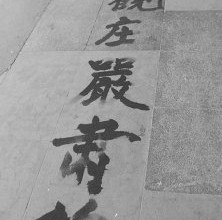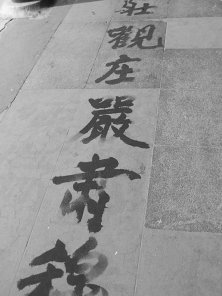
 Break-throughs and how to handle them
Break-throughs and how to handle them
Sometimes you have a writing break-through – an ‘aha’ moment when something that didn’t make sense before suddenly does, or when you leapfrog a whole series of problems to a solution you didn’t know you were seeking. I don’t mean in terms of plotting or character development, although those happen too, usually (to me at least) when I’m brushing my teeth and I suddenly realise (two words you should try never to use in fiction are suddenly and realise and never ever together) that if the hero is Armenian, or left-handed, then everything works out perfectly.
No, I mean those moments when you discover how to do dialogue properly, as if people were speaking it only better. Or the flash of light that shows how to move from scene to scene in a novel without clumsy endings or expository beginnings. Or that if you write what you see, rather than what you know is there, you develop something of a painter’s eye.
This last is the break-through that’s happened to me in recent weeks, through sketching every day, and in relation to writing what it’s taught me is that while I always knew that ‘write what you know’ was a sad and unhelpful truism, ‘write what you see’ is a completely different and more demanding stricture. It does require you to decide who is seeing, and what their vision is like, and it requires a different kind of writing, less omnipotent or perhaps more grounded in the fallibility of humanity. Anyway, the point of all this is that from time to time I’ve had a student have an ‘aha’ – and while it’s wonderful to help somebody to reach that point, it’s always made them dissatisfied with their work to date. Usually they ask, ‘Should I go back and revise all my old stories with this in mind? Or is it better to just leave them alone and start new work with my new skills?’ and I’ve never known what to answer.
Now I think I do. The answer, as far as I can express it, is very much like the answer that sportspeople get when they develop a new technique. If you have a good golf-swing and want to make it great, or if you’re a distance runner who doesn’t have a kick at the finish and wants to find a sprint for the line, you will be told by your coach that ‘unlearning’ is the process to learning. Unlearning requires the acceptance that for a few weeks or months, depending on how often you practice, your swing or running gait will be worse than before. You will feel uncomfortable and fall back into you old ways, and breaking out of them will be painful. There will be no progress at all, in fact, you’ll go backwards. But, once you integrate new skills with old, harmonisation occurs and you find that you have a seamless progression from your old performance to an enhanced one.
So the answer is: accept that a new skill or refinement to your writing will make current work uneven for a while. Only when you’re sure you’ve got the new technique seamlessly integrated into your daily writing should you go back and upgrade older work. And perhaps that means that an ‘aha’ should be followed by a period of practice writing for the sheer fun and hell of it, without expecting to produce publishable or even revisable work, like a bunch of practice shots against a brick wall to perfect your tennis serve before taking it out there to try it on Federer. Or, like the Chinese, by developing your calligraphy in water, before taking it to ink …


2 Comments
JM Reinbold
15th September 2009Thanks so much for this insight:
“This last is the break-through that’s happened to me in recent weeks, through sketching every day, and in relation to writing what it’s taught me is that while I always knew that ‘write what you know’ was a sad and unhelpful truism, ‘write what you see’ is a completely different and more demanding stricture. It does require you to decide who is seeing, and what their vision is like, and it requires a different kind of writing, less omnipotent or perhaps more grounded in the fallibility of humanity.”
I have experienced this myself recently, but had not put that experience or its consequences into words.
Kay Sexton
20th September 2009JM, glad to be of use – and glad you’ve had a break-through! I hope it was an absolutely grand one …